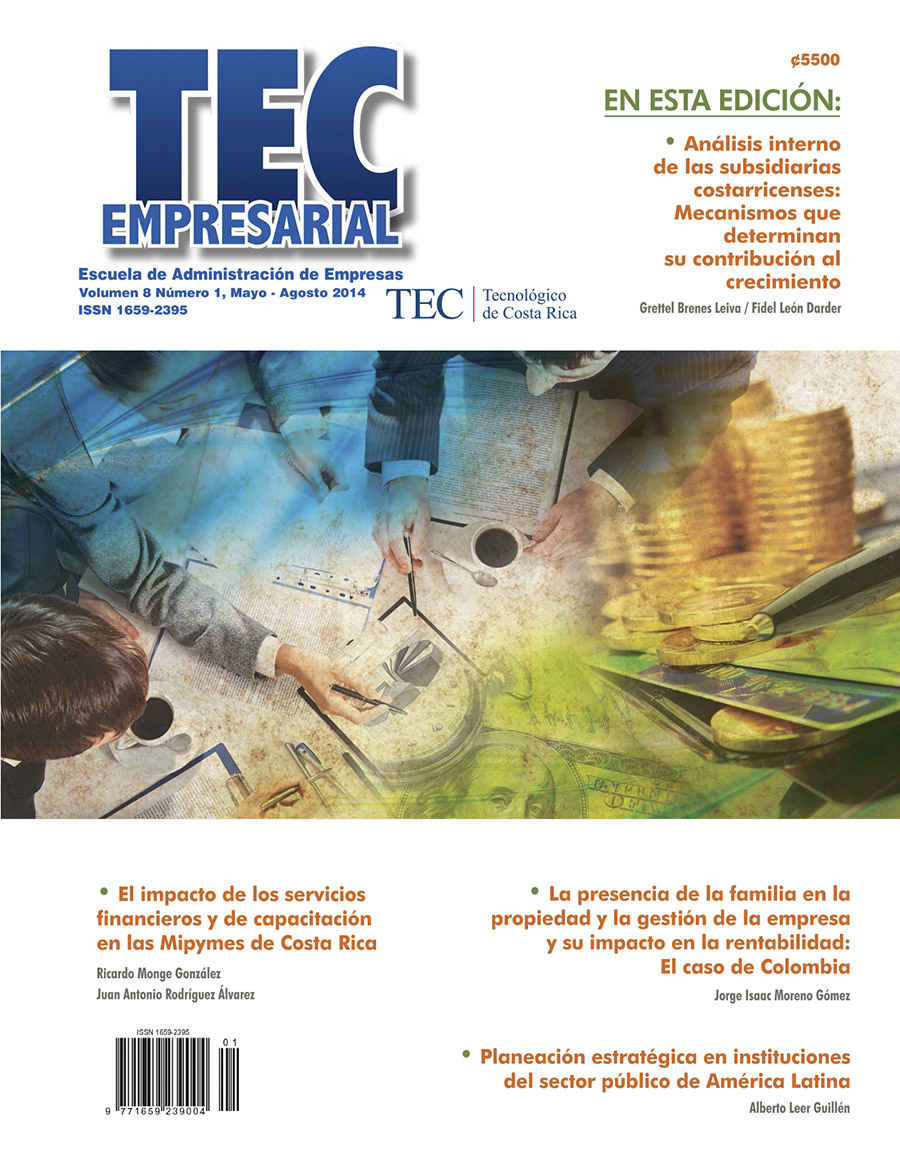El impacto de los servicios financieros y la capacitación de las MIPYMES de Costa Rica (The impact of financial services and managerial Training on Costa Rica SMEs)
Main Article Content
Abstract
Este trabajo estima el impacto de los servicios financieros (diferentes del crédito) y los cursos de capacitación de corto plazo sobre las ventas reales, número de empleados, grado de formalización y acceso al crédito en el sistema financiero formal, de un conjunto de micro, pequeñas y medianas empresas clientes de una entidad de microfinanzas que opera en Costa Rica. Para ello, se emplea un panel de datos de cinco años (2006 a 2010) y modelos econométricos que tratan de controlar por atributos de las empresas, tanto observables como no observables, que afectan el desempeño de las variables sobre las cuales se mide el impacto. Los resultados señalan que aquellas empresas que recibieron servicios financieros diferentes del crédito lograron aumentar más el valor de sus ventas y el empleo, y también mejoraron su grado de formalización (aunque este resultado es débil estadísticamente), cuando se las compara con aquellas que no obtuvieron acceso a este tipo de financiamiento. Además, parecería ser que las garantías de participación y cumplimiento son el instrumento financiero que más impacta en forma positiva el desempeño de estas empresas. Por otra parte, no se obtuvo evidencia de que los servicios de capacitación de corta duración tuvieran algún impacto sobre el desempeño de estas empresas. Con base en todo lo anterior se plantean varias recomendaciones de política.
Abstract
This paper considers the impact that financial services other than credit, and short term training courses have on total sales, employee number, level of formalization and access to credit in the regular financial system for a group of micro, small and medium size enterprises that are clients of a micro financing entity operating in Costa Rica. With this aim, data collected over five years (2006 to 2010), and econometric models that monitor a company`s performance by visible and non-visible attributes affecting measuring variables were used. Results show that the companies that received financial services other than the credit itself increased sales and employment more , and also improved their level of formalization (although the latter is statistically weak), when compared to others that did not had access to this type of financing. Also, it seems that participation and compliance guarantees are the most impacting financial instrument on company performance. On the other hand, no evidence was obtained about short training courses had any impact on company performance. Finally, some policy changes are recommended.
Article Details
The digital version of the journal is registered under the BY-NC-ND 4.0 Creative Commons license. Therefore, this work may be copy and redistribute the material in any medium or format, as long as you give appropriate credit, provide a link to the license, and indicate if changes were made. You may do so in any reasonable manner, but not in any way that suggests the licensor endorses you or your use.
The authors keep the copyright and give the journal the right of the first publication and the possibility of editing, reproducing, distributing, exhibiting and communicating in the country and abroad through printed and electronic means. On the other hand, the author declares to assume the commitment on any litigation or claim related to the rights of intellectual property, exonerating of responsibility to the Business School of the Costa Rica Institute of Technology.


